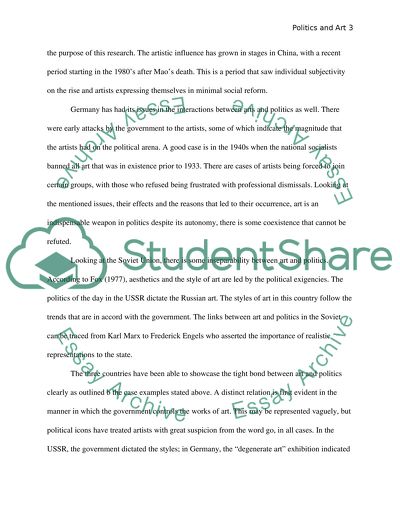Arts and Politics - China, Germany, and the Soviet Union Essay. Retrieved from https://studentshare.org/history/1488539-politics-and-arts
Arts and Politics - China, Germany, and the Soviet Union Essay. https://studentshare.org/history/1488539-politics-and-arts.


